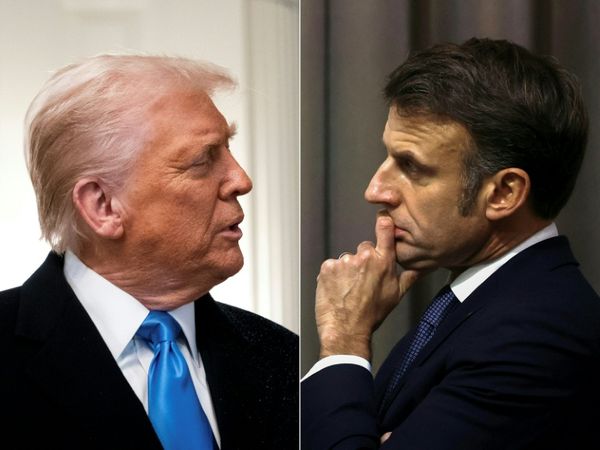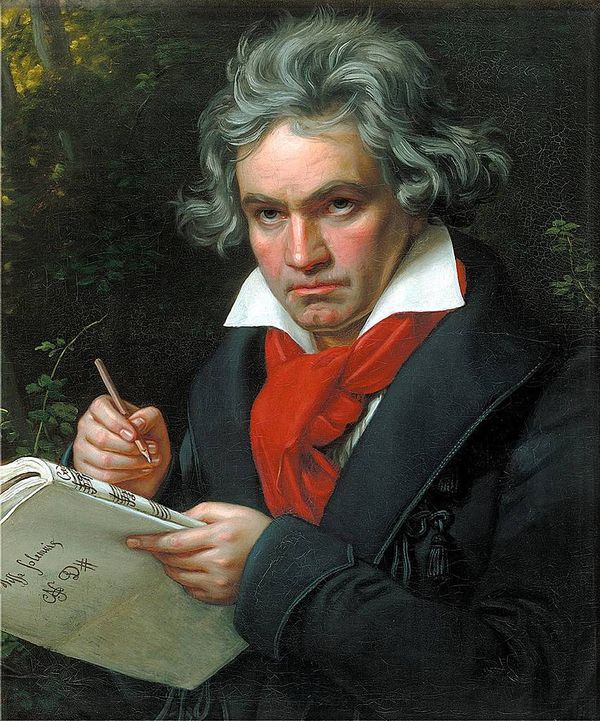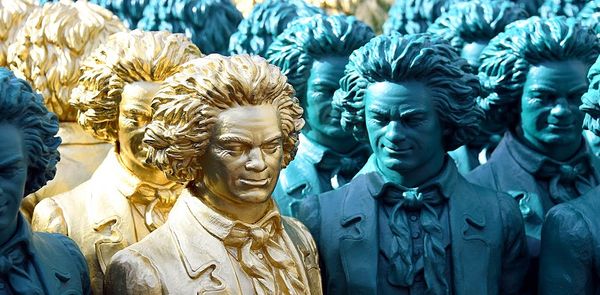
The one thing everyone knows – or thinks they know – about Ludwig van Beethoven is that he composed some of music’s greatest masterpieces while completely deaf. Compelling as this sounds, the story has a flaw: it may not be true. According to a leading Beethoven expert, the composer still had hearing in his left ear until shortly before his death in 1827.
“This is going to send everybody scurrying to revise biographical concepts about Beethoven,” Theodore Albrecht, professor of musicology at Kent State University, Ohio, told the Observer. Albrecht, who has uncovered crucial evidence in contemporary accounts, believes that although Beethoven suffered severe deterioration in his hearing, he did not lose it “to the very profound depths” that musicologists have assumed.
“Not only was Beethoven not completely deaf at the premiere of his Ninth Symphony in May 1824, he could hear, although increasingly faintly, for at least two years afterwards, probably through the last premiere that he would supervise, his String Quartet in B-flat, Op 130, in March 1826,” Albrecht said.

Beethoven began to lose his hearing in 1798. “If I belonged to any other profession, it would be easier,” he told a friend, “but in my profession it is a frightful state.” Between 1812 and 1816, he tried ear trumpets, with little success. From 1818, he carried blank “conversation books”, in which friends and acquaintances jotted down comments, to which he would reply aloud.
One account, dated 1823, tells of the composer visiting his favourite coffee house, where he was approached by a stranger seeking guidance on his own failing hearing. Beethoven scribbled down this advice: “Baths [and] country air could improve many things. Just do not use mechanical devices [ear trumpets] too early; by abstaining from using them, I have fairly preserved my left ear in this way.”
He added: “When possible, [conversing] through writing is better; the hearing will be spared.” In another account, from 1824, a musician visits Beethoven and tells him: “You can already conduct the overture entirely alone … Conducting the whole concert would strain your hearing too much; therefore, I would advise you not to do so.”
“The conversation books are going to be a game-changer,” Albrecht said. Among the surviving examples – two in the composer’s birthplace, the Beethoven-Haus museum in Bonn, and 137 in Berlin State Library – he has so far found 23 direct references to the subject of hearing, and estimates that several dozen more will show “he could still hear something”.
Some musicologists suggest that, as his hearing worsened, Beethoven favoured lower and middle-range notes in his compositions and began to use high notes again only once he was totally deaf, drawing on memory and imagination. But, looking at the range of pitches used in the final complete symphony, Albrecht dismisses that theory: “I don’t think it holds. Otherwise, what do you do with the piccolo in the Ninth Symphony – up there on top – and the contrabasses down below? All the registers are there. He could hear them with his inner ear. He was amazing.”
Albrecht is now editing the “conversation book” accounts and translating them from German into English for the first time, a mammoth publishing project that will eventually comprise 12 volumes.
British company Boydell & Brewer will publish volume 3 of Beethoven’s Conversation Books in May (£45), following the publication of some of the new research in an article entitled “The Hearing Beethoven”, in The Beethoven Journal this month and (in German) by the Vienna Oboe Journal in March.
Covering the period from 1818 until the composer’s death, the books’ subjects range from music and politics to shopping lists and errands. Albrecht said that, although a scholarly German-language edition was begun in 1968, its format made it difficult to read and its contents had been misinterpreted. The English translation of this work has extensive footnotes on each page to help readers make sense of the evidence.
He added that these “compelling conversations” will finally allow English-speaking music lovers to hear what Beethoven and his friends were discussing.
Evidence proving that Beethoven could still hear “doesn’t take away from the fact that this man did what he did in the face of overwhelming difficulty”, he noted.
2020 marks the 250th anniversary of the birth of one of the greatest composers of all time. The event will be marked by festivals and programmes across the world.










